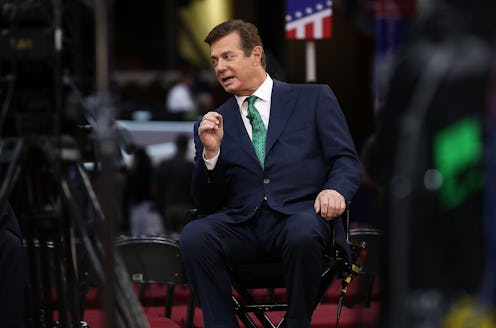News
This One Detail About The FBI Raid On Paul Manafort's Home Should Make Trump Panic

On Wednesday morning, the Federal Bureau of Investigations executed a pre-dawn raid on the home of former Trump campaign chairman Paul Manafort, seizing documents and records ostensibly relevant to independent counsel Robert Mueller's ongoing investigation of the Trump-Russia affair. The news landed as a seismic shock, and there's a very good reason to think this is bigger news than past reports of subpoenas ― in fact, this one detail about the FBI's Manafort raid suggests President Trump and the White House have good reason to be worried.
Namely, it's all about the necessary preconditions for the bureau raiding Manafort's residence. This is the sort of action that requires a search warrant, and for a judge to issue such a warrant, they must conclude that there's probable cause to believe a crime may have been committed. That's a different, steeper standard than required for the issuance of a subpoena. Manafort had been subpoenaed by the Senate Judiciary Committee earlier this year, but it was ultimately dropped amid the Mueller team's ongoing investigation.
In short, the fact that a judge grated a warrant to raid Manafort's home is one of the strongest signs yet that investigators have their sights set on some form of criminal wrongdoing. However, to be absolutely clear, Manafort has not been charged with anything, and the issuance of a warrant is not in itself an indication of guilt.
A spokesperson for Manafort confirmed that his home was raided in a statement on Wednesday morning.
FBI agents executed a search warrant at one of Mr. Manafort's residences. Mr. Manafort has consistently cooperated with law enforcement and other serious inquiries and did so on this occasion as well.
That a judge signed off on a search warrant against Manafort should be cause for concern for the White House, whether because it signals that a former top official is in legal jeopardy, or whether it could reflect an effort to turn him against his former associates.
Back in March, when the extent of the investigatory scrutiny descending on Manafort became clear, then-White House press secretary Sean Spicer attempted to downplay his significance to the Trump campaign, insisting he only played "a very limited role." In reality, he was, for a time, chair of the entire campaign (a hugely influential and consequential job), and while he occupied that job, he wasn't shy about trumpeting the prominence of his role ― he specifically claimed that he "work[ed] directly for the boss," Trump himself.
Any significant legal peril for Manafort could in theory end up implicating Trump too, though the president has strenuously denied any wrongdoing for months.